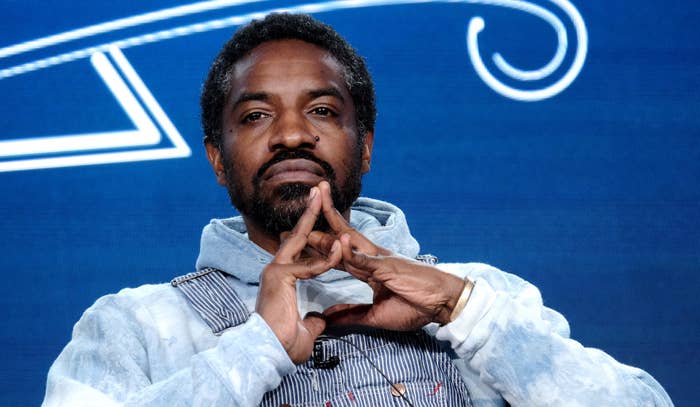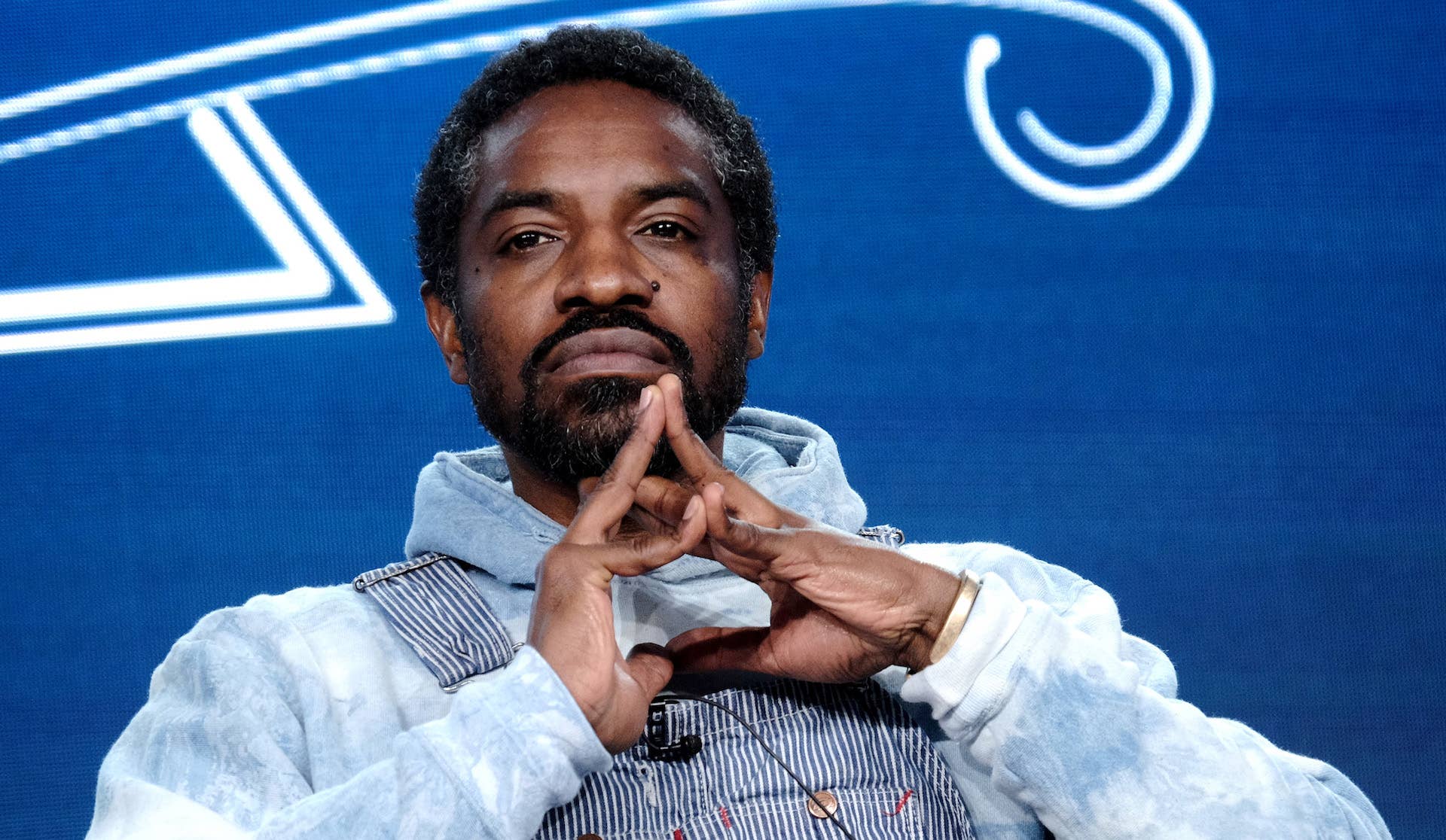
André 3000’s latest merch collection is both an ode to OutKast’s 2014 reunion tour and a tribute to the times.
In a new interview with Blackbird Spyplane, the artist better explained how he came up with the phrases.
“All these slogans were made during the OutKast tour in 2014,” Three Stacks said. “I wanted to find something to keep myself excited each night, because I didn’t have new verses and new songs, and it felt weird to play old songs from 1993, so I said, ‘Let me put these thoughts on my suits.’"
He continued: "Some were serious, some were silly. Just random thoughts like me admitting to loving fruit snacks! But also this was summer 2014 so with a lot of these suits I was responding to Ferguson in real time. So it was fun and serious and sad and everything. But they still make sense now—they ring even truer.”
The t-shirts were inspired by the jumpsuits that he wore during the tour, which were emblazoned with sayings like, “Ok, hand over the cure and stop playing,” “I pray there’s a god at the end of all this,” “Can one rest in peace & violence?” and more.
Elsewhere in the interview, André also discussed why the shirts being “made ethically” was important to him. He said that "every day I’m looking for better ways to make it make sense, because honestly a lot of these clothes we’re making aren’t necessary, so we have to find the best way to make these artful goods. We’re not in Alaska where we need to cover ourselves to survive—these are fashion.”
He also considers how he can make his “footprint smaller," saying, “I’m learning how much water it takes to make a shirt and I never knew that. I used to think, ‘How could clothes hurt people?’ I had no idea.”
André admitted he had lost some hope in the movement: “I feel like, marches, in the ‘60s, they worked, but over time they might have lost power,” he said. “Honestly, I lost hope in marches—until now. I saw it working again and I said, ‘Whoa.’”
He pointed out how the coronavirus pandemic also created the “perfect storm” since everyone was on lockdown and “had nothing to do but react.” He added, “It’s kind of a blessing and a curse: if everyone was at work right now, going about their business, the protest turnout wouldn’t be anywhere near as high. But it’s been a long time coming and it came to a head right now.”
He also emphasized how both COVID-19 and the ongoing protests are “affecting all of us—things like classism and money separate us, but this sets the record straight.” He continued, “I guess we’re seeing how bad it is, but that’s the point: this makes everyone see it clearly. I love that part of it because it’s making everyone respond in some type of way. You get to see who you really are.”

